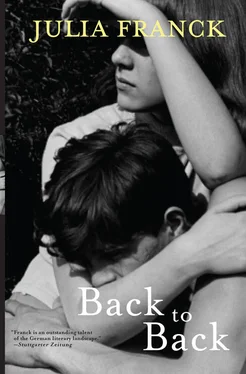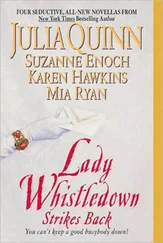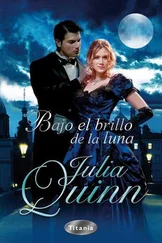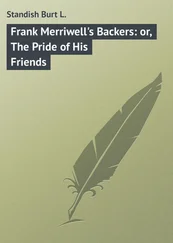The white of the sheet had hurt his eyes so much that Thomas could see only a blurred image of the dead man, the yellow of his skin, the glittering of the fresh wound. He felt weak at the knees, his pulse was driving him out of himself. If he didn’t hold on to the bed he would collapse, fall over, now and next moment too. Marguerite daisies danced on the dead man’s bedside table, little brides of the sun. Hadn’t the surgeon spoken of making progress to the young wife? Told her what progress medicine had made, and surgery. His hands had relieved the man of part of his liver, and now the cure could proceed. Hypocrite. Thomas reached for the sheet and sat down on the young man’s bed. He felt a roll of something, the covers turned back under him, he heard Marie’s voice saying something to him, and he wanted to stand up, but he tipped over backwards and felt the dead man’s knees under his spine. Someone took his hand and touched his cheek. Thomas had not fainted although he felt faint. The marguerite daisies on the dead man’s locker bowed, fading in their dance. Thomas felt a sense of surfeit, felt that it was all too much. Who was going to tell the young man’s wife the news? He would never be able to work as a doctor himself. Go outside the door, get a breath of fresh air, Marie told him. He shook his head. He didn’t want to leave her alone, not with the nurse hurrying in, the woman doctor entering the room, and the dead man. He didn’t mind death, it was the living he minded. Thomas took a deep breath, wiped his face with his sleeve, wiped it dry. Marie tried reviving the dead man, but because of the gaping wound over his liver the procedure was difficult. The doctor gave instructions, Thomas was told to lower the raised bed by winding the handle. But when he let go of the handle and was standing upright by the bed again, the doctor too saw that the man was dead. He was to be laid out and taken away. Thomas helped Marie. She had put back the sheet and wheeled the bed out into the corridor. From there, the dead man would be taken to pathology as soon as the doctor had made out his file and the necessary forms. Marie sent Thomas back into the room to fetch the bedside table. The dead man’s wife had brought the marguerite daisies that morning, when Thomas was collecting breakfast crockery from the other beds. He had seen her taking the newspaper wrapping off the flowers and sitting down beside her husband’s bed, when she had looked at her watch. She probably had to keep an eye on the time, visit her husband only briefly before she went to work, and she couldn’t come back until evening. She had taken his hand and pressed it to her stomach. Her husband had said something quietly, whereupon she had kissed his forehead and his temples and said goodbye.
If you were standing on a large street on a July day, thirsty and waiting for Marie and a child you didn’t yet know, you could get dizzy with the heat and the exhaust fumes and the thought of the first person to die under your hand. Thomas rolled the bag up. He rubbed a radish on his trousers and put it in his mouth. To some extent, radishes could quench thirst.
What do we do with this? Thomas had held up the little beaker with the medicaments. For the first few days after a patient had had an operation, a higher dose of morphine was prescribed, mixed with a barbiturate meant to allow that patient to sleep in spite of the pain. Day by day the medicaments were weighed, measured and given out by the matron or Marie, on the doctor’s orders. Marie had taken the little beaker from Thomas, opened its screw top, looked inside as if to assure herself of something, and screwed it up again. She had put the beaker in the pocket of her white coat. He won’t have any more use for this now, she had whispered, what do you think?
Thomas had wiped down the bedside table, sorting out gauze, muslin bandages and tinctures on Marie’s trolley the way he had watched it being done for weeks now. He knew what order she arranged things in very well. As well as he knew her figure.
Now, even from a distance, he knew the way she walked, holding the hand of a little girl in a blue dress who must be her daughter. She was carrying a basket in her other hand. Thomas spat out the plum stone and went towards them.
He crouched down in front of the child and held the bag of dried plums out to her. But the little girl turned her face into Marie’s skirt, clutched her mother’s hand and rubbed her face hard against the back of it. She took a quick look at Thomas only for a tiny moment, and then immediately hid behind Marie’s hand again. Later, maybe, said Thomas, standing up, and he offered Marie the plums.
The tram made its way through the thickets of the city. It had an acrid smell of sweating skin clad in nylon. Later, in the suburban train, the windows were open and summer had taken up residence in the carriages. The little girl sat next to Marie, snuggling into the crook of her mother’s arm, and let Marie put a plum in her mouth. Marie had taken the stone out of the fruit with her finger. Suck it first, she told her child, don’t swallow the whole plum down, suck it first and then chew. With her fingertips, she searched her raffia basket for a handkerchief, but couldn’t find one. Thomas guessed what she was going to ask him, and had already tried his pockets. Sorry, he said.
She licked her fingers. Don’t look at me like that, she said, shifting back and forth in her seat, as if Thomas were embarrassing her.
She leaned her bare leg against his, while longing glances passed between them.
With a loud smacking noise, the child put her fingers in her mouth, took out the plum, and examined it until it slipped out of her hand. She tried to catch the plum as it fell on her dress, but it dropped on the dirty floor of the train. The child climbed down from the seat, crouched on the floor, pressed a finger into the plum and turned it over, rolled it back and forth until its black gleam was gone. You could pick up a plum like that even with one finger. The child put the fruit in her mouth and climbed back on the seat.
Under the tall elms in the shady marshland, the irises were still in flower, and countless midges settled on their skin. Marie carried the child in her arms over the marshy ground, once sinking in almost up to her knees. Thomas held her hand so that she could support herself. She had wrapped her little girl in a bathing towel to protect her from the midges.
Only by the lake, after the child had crouched on the bank for a long time kneading the wet sand, and had gone to sleep playing with Marie’s hair, did she ask whether he had brought the poems he had promised her. After they had bathed he could see her breasts. Now he was lying on his stomach to hide his arousal. The little girl was sucking her thumb in her sleep and clutching her mother’s hair tightly in her fist, as if afraid that she might go away.
They were alone beside the marshy bay. Thomas had been coming here for years. No one who bathed in the bay put a swimsuit or trunks on, but this was the first time that Thomas had been surprised by anyone’s nakedness. Often as Marie and he had been together over the last few weeks after work, sometimes lying side by side, touching and kissing each other, he had never seen her naked from a distance and in the open air; she was lying not an arm’s length away from him with her child, her skin dazzling in the sun. If he closed his eyes he had a black negative image of her. He preferred to close his eyes to hide the expression in them. Her skin was an almost translucent white, her nakedness seemed to him so new and unique that it was hard to imagine a husband. Thomas could not picture the man who saw her naked morning and evening whenever he wanted to, the man who would offer her to his colleagues for a quick fuck.
Don’t you want to? She removed the strand of hair from her child’s fist and began lovingly tickling the little girl’s nose with it. It was only when she raised her arm that he could see blue bruising on the inside of it where the husband or one of his friends must have grabbed hold of her.
Читать дальше












